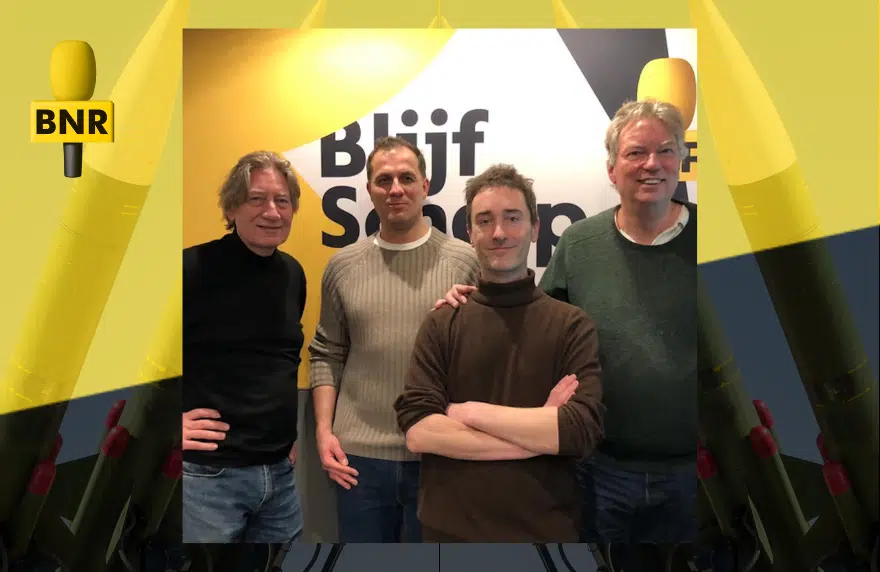Door Russische agressie en twijfel aan de Amerikaanse nucleaire garanties rijst de vraag: moet Europa niet een eigen Bom? Te gast bij BNR podcast Boekestijn en De Wijk: HCSS-defensiespecialist en kernwapenexpert Paul van Hooft.
De Amerikaanse en NAVO-kernwapens in Europa zijn niet heel erg geloofwaardig als afschrikking tegen Russische dreiging. Terwijl Rusland raketten installeert die voorheen vielen onder het middellangeafstandsakkoord, ontbreekt het in het Westen aan tactische wapens. Dat veroorzaakt een enorm gat in de zogenaamde Europese escalatieladder, zegt Paul van Hooft, defensiespecialist en kernwapenexpert bij het Den Haag Centrum voor Strategische Studies (HCSS), in BNR’s Boekestijn en De Wijk.
Het Franse atoomwapenarsenaal is in principe sterk genoeg om Moskou of Sint-Petersburg te vernietigen, zegt Van Hooft. Maar waar Rusland beschikt over zo’n vierduizend tactische wapens, beschikt Frankrijk over zo’n 290 wapens die strikt genomen niet als tactisch wapen gelden. Wél heeft Frankrijk luchtgelanceerde kruisvluchtwapens – een ‘pre-strategisch schot voor de boeg’. ‘Als Rusland op het punt zou staan om Europa onder de voet te lopen en het voortbestaan van Frankrijk in gevaar brengt, is het een geloofwaardig wapen.’
Conventionele of hybride agressie
Maar dat geldt alleen voor concrete dreiging richting een land, in dit geval Frankrijk, dat zelf over nucleaire wapens beschikt. De vraag is wat je precies moet doen op het moment dat Rusland ‘slechts’ dreigt met ‘conventionele of hybride agressie’ richting Baltische staten of Polen, zegt Van Hooft. ‘Dan heb je hetzelfde probleem dat de Amerikanen hadden tijdens de Koude Oorlog: hoe maak je aan je Europese bondgenoten geloofwaardig dat ze bereid moeten zijn om New York, Washington of Los Angeles op te offeren voor Parijs, Bonn of Den Haag.’
Europa kán wel veel, maar is voor het creëren van een eigen arsenaal gebonden aan verschillende niet-aanvalsverdragen, zegt Rob de Wijk, hoogleraar Internationale Betrekkingen en directeur van het HCSS. Nuclear sharing – waarbij NAVO-lidstaten elkaars kernwapens kunnen inzetten – stuit niet alleen op non-proliferatieverdragen, maar kan ook botsen met een verdrag uit 2017, waarin een verbod op kernwapens is geregeld. ‘Dus juridisch én politiek is het bijna onmogelijk om echt tot een Europees kernwapen te komen.’
Gat in de escalatieladder
De Wijk wijst op de verstrekkende gevolgen van het ontbreken van tactische wapens: een enorm gat in de escalatieladder. Dat houdt in dat je niet meer geloofwaardig bent in je afschrikking. ‘Dan moet je in één klap te veel gaan opschalen en hebben de Amerikanen nog maar één optie: strategische kernwapens inzetten, vanuit de VS of vanaf onderzeeërs. Als je dát doet, heb je onmiddellijk een wereldwijde kernwapenoorlog. Met dat vooruitzicht moet je goed in het achterhoofd houden dat de VS niet zal gaan vergelden.’
Van Hooft vergelijkt het gat in de escalatieladder met een geluidsinstallatie zonder volumeknop: óf het is een soort fluistertoon, óf het is gelijk voluit. ‘En bovendien werkt het maar één kant op. Met conventionele wapens kun je iets kapotmaken en vervolgens kijken of je ophoudt of verder opvoert. Maar kernwapens gaan gepaard met enorme vernietiging, potentiële vernedering en wraakzucht. Dat maakt het, ook als je alle middelen in huis hebt, zo moeilijk om de escalatieladder te beheersen. Daar hebben we eigenlijk ook geen ervaring mee.’
Bron: Boekestijn en De Wijk, 16 maart 2024 / BNR, 16 maart 2024






